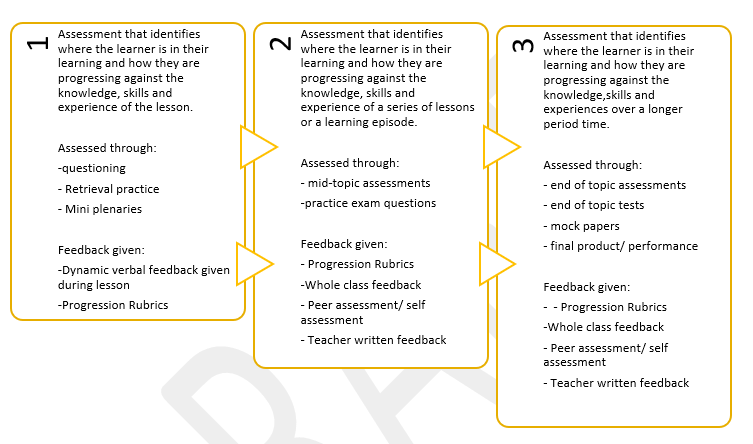- Home
- Curriculum
- Assessment
Assessment
At Newport High we believe the aim of assessment is to support each individual learner to make progress. The 6 Areas of Learning use a range of purposeful assessment opportunities that best reflect the intended learning to understand the progress learners are making and the needs of individuals and groups to plan future learning episodes.
Assessment is a fundamental process of the teaching and learning process and we believe a variety of assessment is critical to understanding learners’ strengths and areas for development and is an integral part of the curriculum design process. When planning and providing learning experiences, all teachers are clear about why and how the understanding gained from each assessment activity will be used to inform future learning. This interrelationship between curriculum, assessment and pedagogy we believe is key to supporting learners to make meaningful progress in their learning
The 3 approaches to assessment are used by staff and learners within schools to support dialogue and feedback on progression

Progression Rubrics
High quality rubrics are used to assess pupil progress and provide the basis for specific feedback that is:
- understandable to the learner
- ensures the learner knows exactly what they have done well and what they need to do next to improve.
In order for students to highly benefit from the progression rubrics, students are explicitly taught the meaning of rubrics and the key vocabulary contained in standards and associated rubric criteria so that pupils understand what success looks like as well as be able to provide high quality peer and self-assessment.
Feedback as Actions
In Newport High School we believe if feedback is to move students forward in their learning, it is helpful to frame it as an instruction to do something. These actions help to improves the learner as well as the work. In giving feedback as actions, students are being set a task that address their learning needs providing a clear purpose to DIRT time.